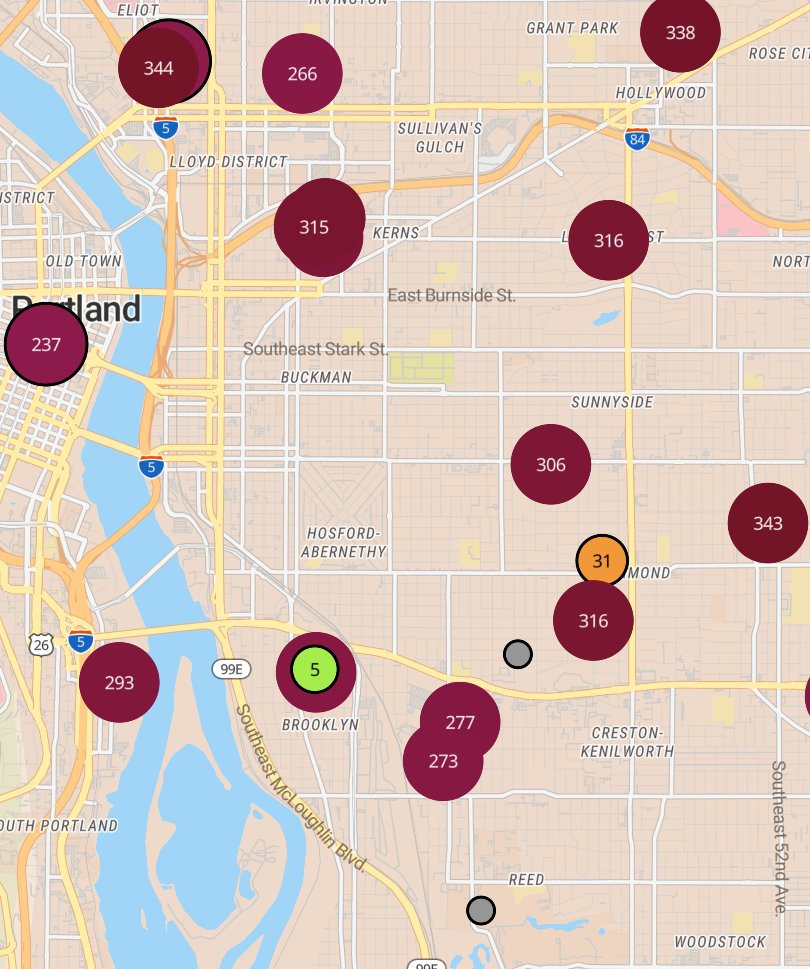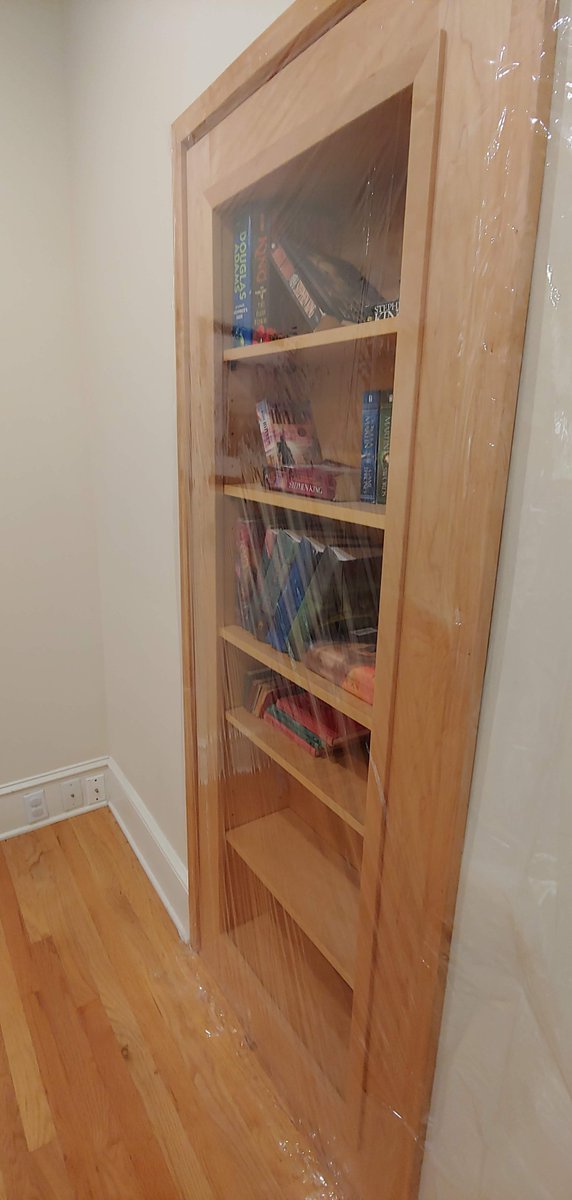As we reckon with record poor air quality in Portland and across the west, some thoughts as my partner and I try to shore up the indoor air quality in our home, especially aiming to reduce exposure in our home for our 18 month old.
TLDR: reduce outdoor air infiltration, run air-cleaners/forced air w/ filter, make a "refuge" in your home in smaller volume for susceptibles. Kiddo sleeps ~14 h/day w/ ~8 ACH thru HEPA. A small source of solace has been green dot on purpleair map (5 ug/m3 PM2.5) in kid's bedroom
Source removal is the place to start in addressing an environmental contaminant. Unfortunately, that's out of our control, but some encouraging signs re: wind patterns and weather have been posted by @NWSPortland. Let's hope for large scale relief there soon.
Two general principles: 1) aim to reduce infiltration of outdoor air and 2) increase loss mechanisms of smoke that makes its way indoors. 1) is tricky with short turnaround, but some potential impact observed from my crude efforts and measurements with low-cost particle counter
First, seek out advice from health authorities. Generally sound: reduce time spent outdoors, close windows and doors, run air cleaners: https://www.oregon.gov/oha/ph/preparedness/prepare/pages/prepareforwildfire.aspx#health
We've used Dylos DC1700 to help identify locations of outdoor air infiltration. Two major culprits in our house. An interior door leads to a very leaky bathroom (I'm giving away the location of our house's "secret" door...). Door/window insulating kit helped seal off this space.
Consider internal airflow. Second source was air from finished basement to upper floors. W/ no air-cleaning in basement+stack effect, woodsmoke entered primary living space. Sealing registers (similar to above) from now-removed forced air system helped isolate basement from house
An aside, credit to @NotALegume for sharing article which speaks about ventilation and air movement with eloquence that I am incapable of and was refreshing to read. Though note, advice in article is not geared towards dealing with wildfires: https://www.theatlantic.com/health/archive/2020/09/diy-ventilation-home-pandemic/616150/
Other places we've temporarily sealed up: bathroom exhaust vents and exhaust from clothes dryer (this was a dryer vent that is currently unused in our basement)
On 2) air-cleaning. If you have forced air, check filter install and run fan-only mode continuously. Most home forced air can take MERV10-13, but this may require some digging on your system: media, filter depth, area, and type of motor has an impact: https://www.osti.gov/servlets/purl/1167440
For portable air-cleaners, a great resource for sizing an air-cleaner from @j_g_allen and @ShellyMBoulder. Can be adapted to a home or room scale (ventilation of median home is 0.5 ACH) https://docs.google.com/spreadsheets/d/1NEhk1IEdbEi_b3wa6gI_zNs8uBJjlSS-86d4b7bW098/edit#gid=1882881703
Re: air-cleaner placement. During wildfire + COVID, we're not going anywhere outside of the house, so it's worthwhile to move the air cleaners we have with us throughout the day to "zone" the area we are spending time in with high CADR.
Can also go for bang for your buck by considering exposure = conc. x time. We move our portable air cleaner back to bedroom (from living space) ~1 h before sleeping. Start night w/ clean air. Big impact to exposure b/c smaller volume makes air-cleaner effective + long duration.
Air-cleaners are hard to come by right now, but some stores still have HEPA air-cleaner stock (we bought an additional from Target yesterday). If you can afford, a good air-cleaner is a long-term investment that pays back. For me, reduced allergy symptoms alone make it worth it.
The box fan-filter is good DIY option: https://www.wired.com/story/could-a-janky-jury-rigged-air-purifier-help-fight-covid-19/
Today at Ace Hardware, 20"x20" MERV13 were sold out, they said due to DIY filters. Good sign but don't hoard MERV13 filters - the wildfire will pass and there are many folks desperate for some air cleaning now.
Today at Ace Hardware, 20"x20" MERV13 were sold out, they said due to DIY filters. Good sign but don't hoard MERV13 filters - the wildfire will pass and there are many folks desperate for some air cleaning now.
The last few days have been trying. I've thought a lot about our way of life, as a family and society more broadly. We have a lot of work to do. Take steps now to protect yourself and your family. Longer term, elect politicians who take public health and climate change seriously.

 Read on Twitter
Read on Twitter



